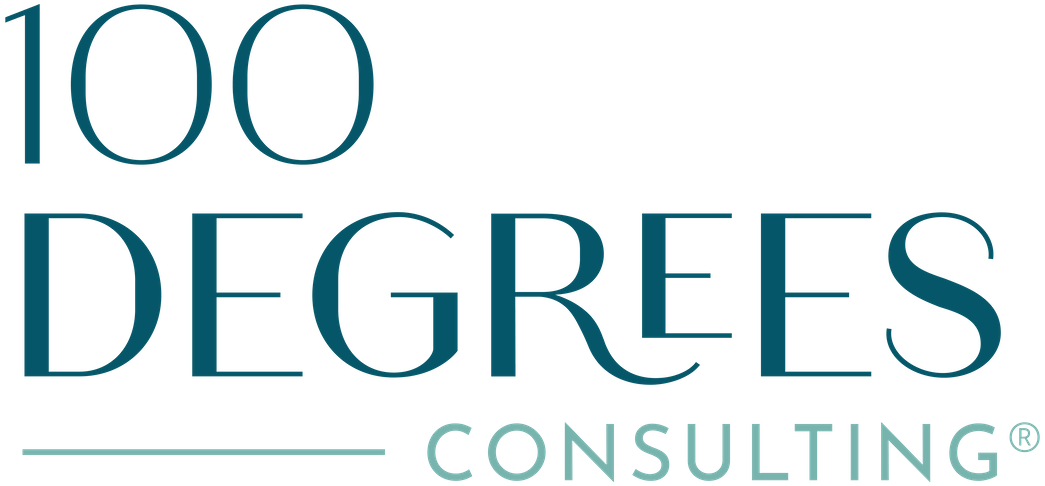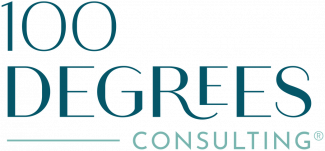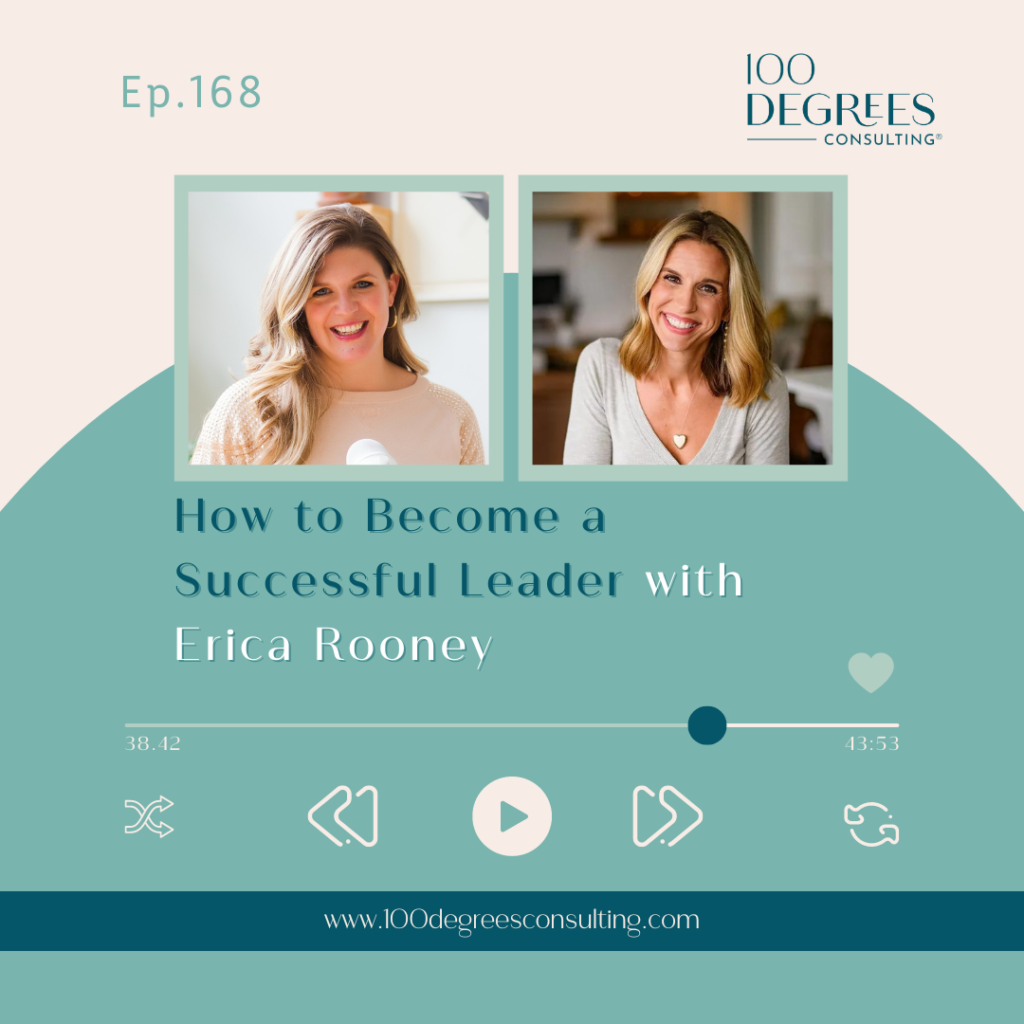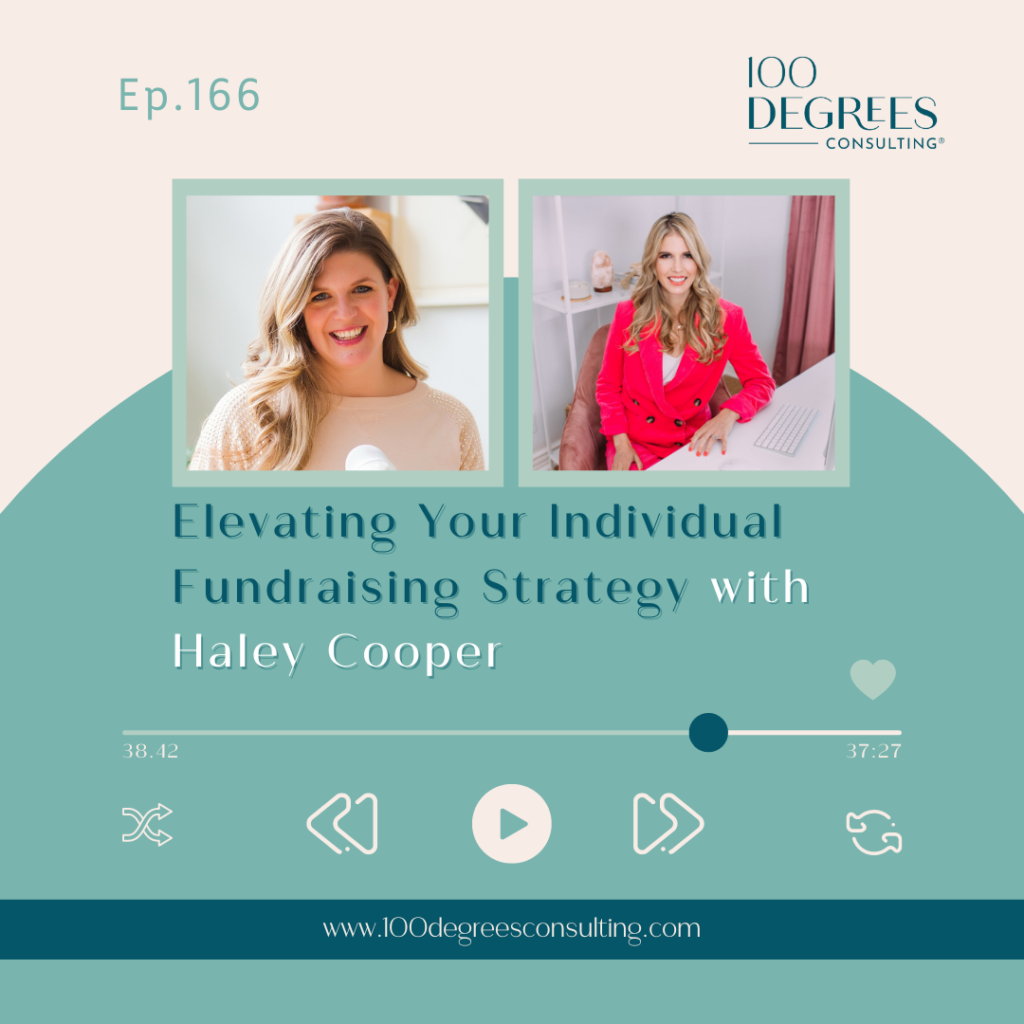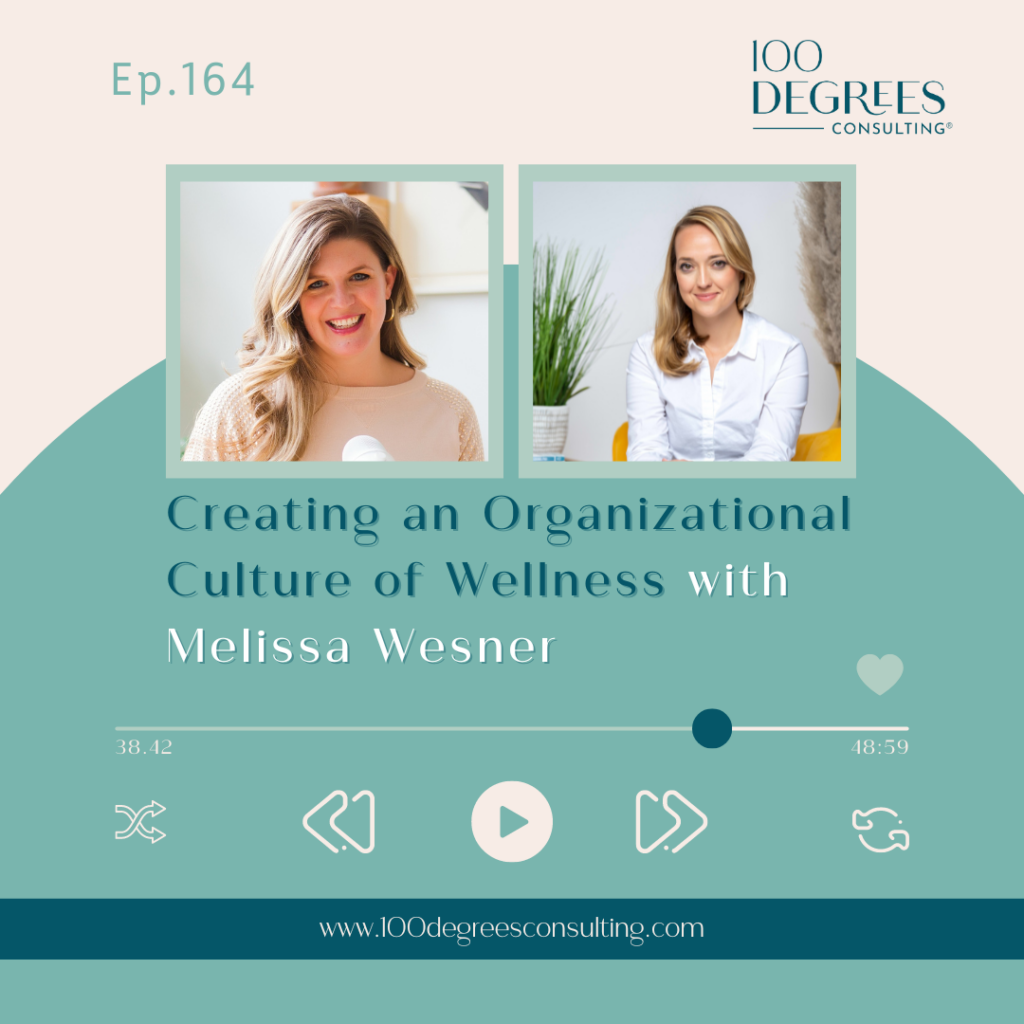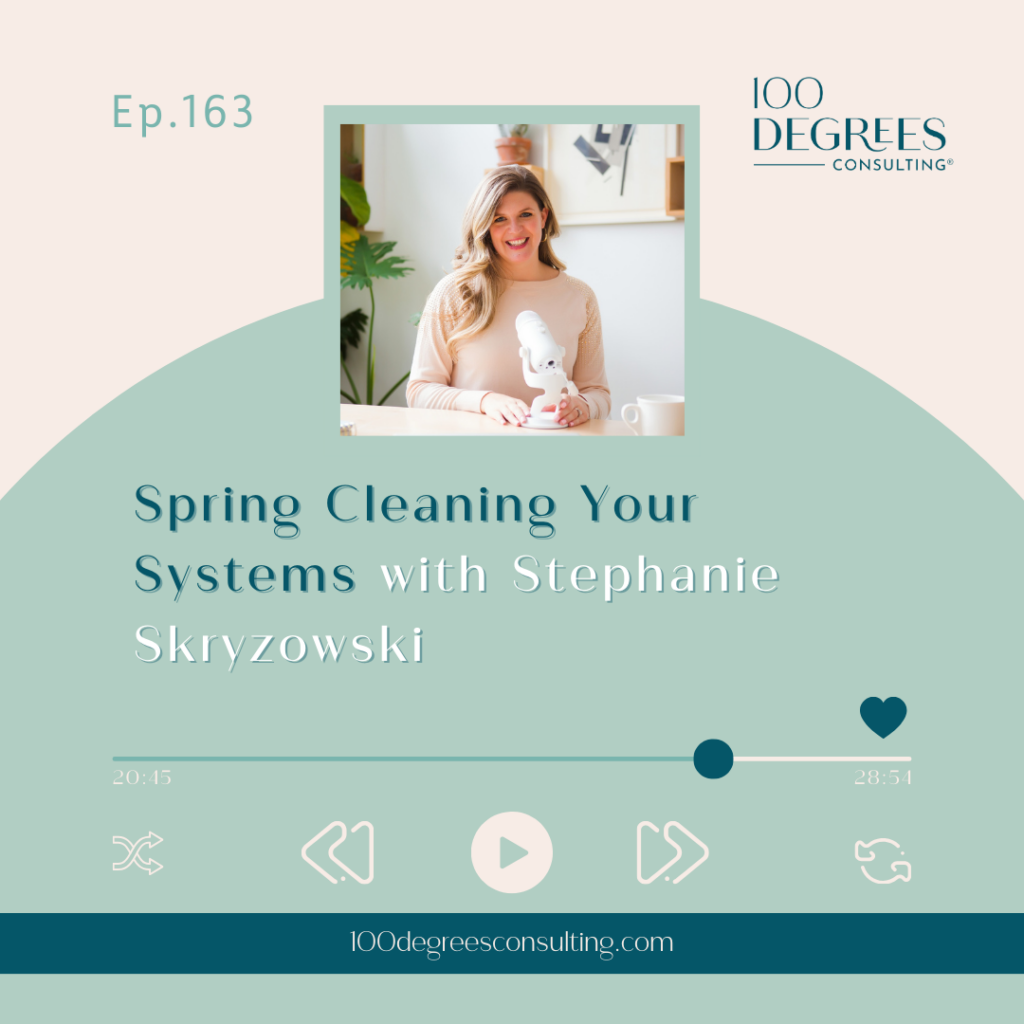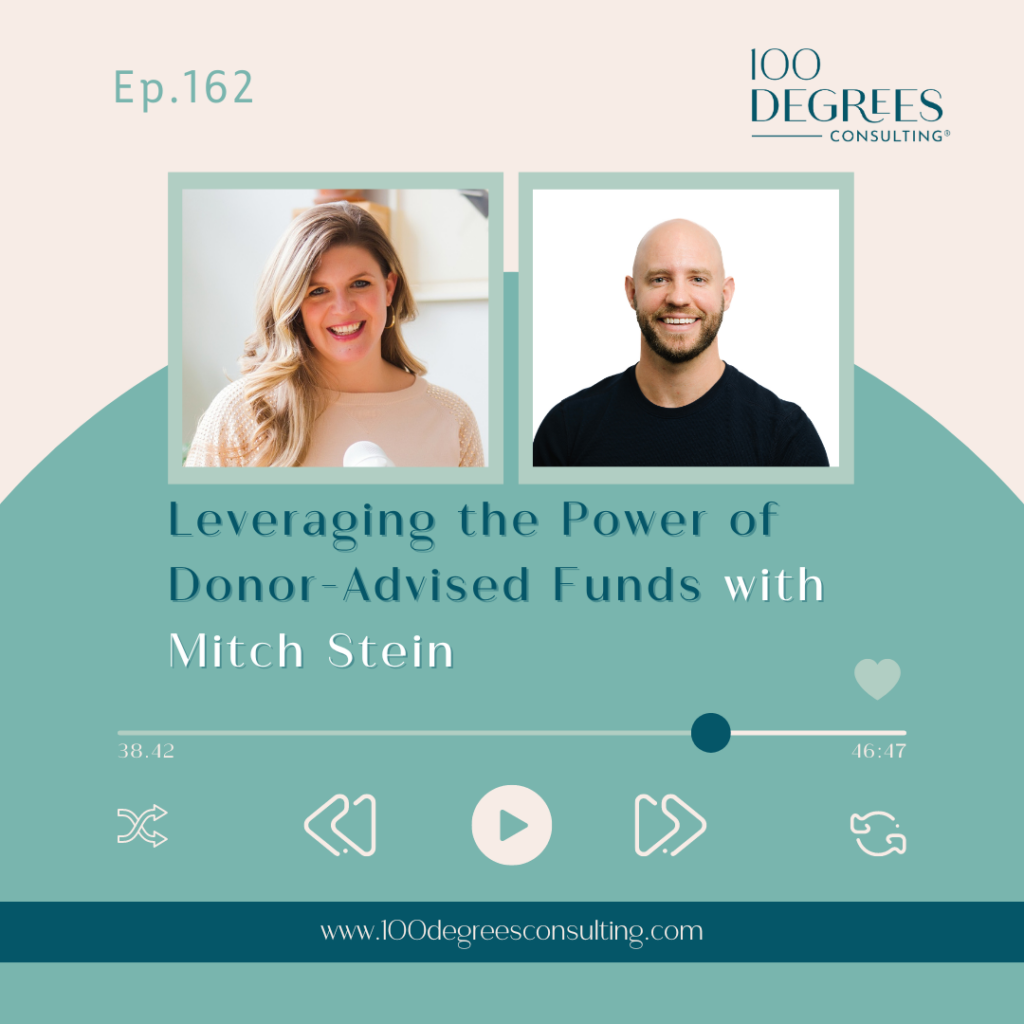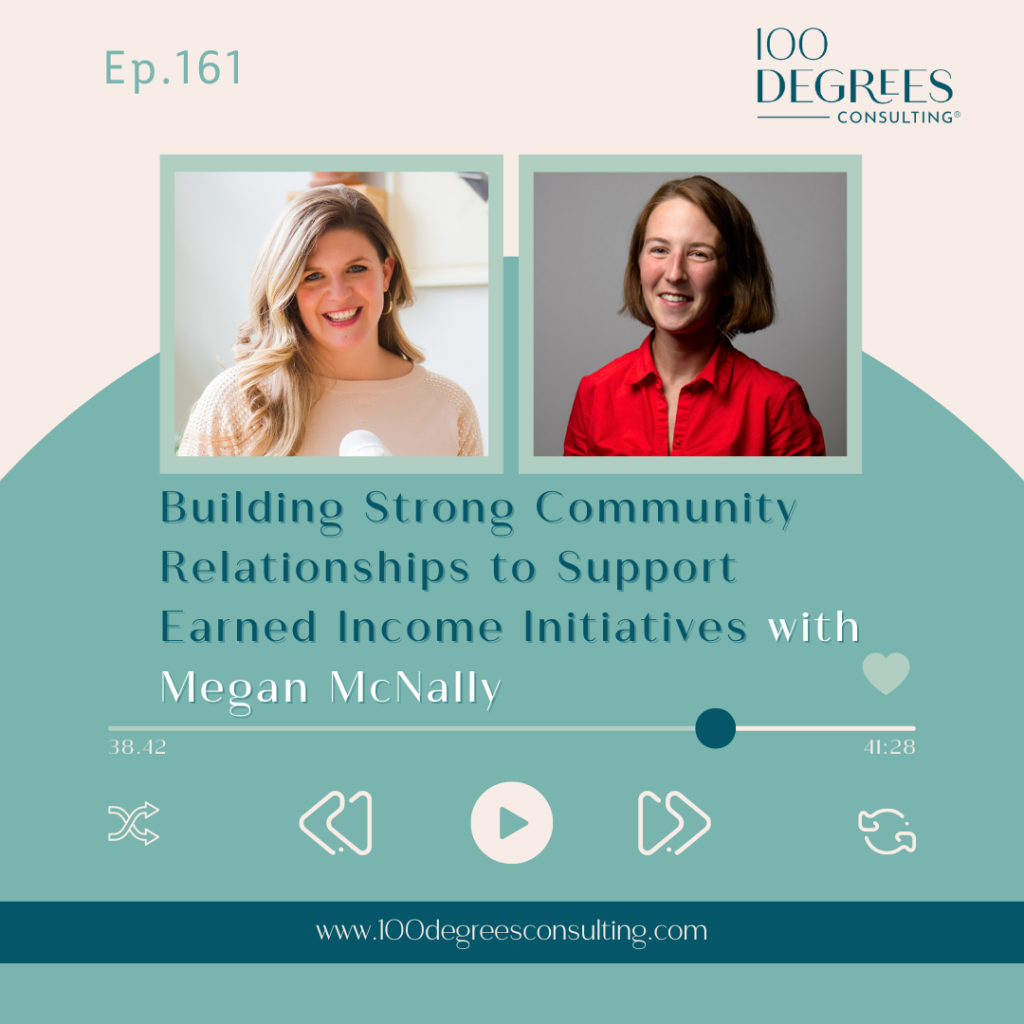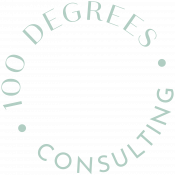Episode 44: Why Ellen Yin Shares Her Business Income With Her Audience
Transcript Episode 44
Stephanie Skryzowski
Welcome to the 100 Degrees of Entrepreneurship Podcast, the show for purpose-driven entrepreneurs who want to get inspired to step outside of your comfort zone, expand it to your purpose and grow your business in a big way. I’m your host, Stephanie Skryzowski, a globe trotting CFO whose mission is to empower leaders to better understand their numbers to grow their impact and their income. Let’s dive in!
Hello, hello, everybody! Welcome back to 100 Degrees of Entrepreneurship Podcast. I’m Stephanie Skryzowski and I’m really excited to have Ellen Yin on the show today.
A self described accidental entrepreneur, Ellen Yin, landed her first client a month into her job search and decided she would never submit another resume again. Ellen profitably bootstrapped her business growth scaling that initial $300 client project into seven figures in revenue. A milestone only 2% of female founders ever achieve, and one that feels especially momentous as a first generation Asian American.
To date, Ellen has served over 9,000 entrepreneurs and brands through her online courses and marketing agency services. Her online membership teaches solopreneurs who offer clients services, how to make their first $10,000 month without a large audience or posting every day.
She also hosts the award winning Cubicle to CEO podcast rated a new and noteworthy show by Apple podcasts during its release week. It’s now downloaded in over 100 countries worldwide, as well as charting and multiple top 50 entrepreneurship podcast rankings. #goals for me over here!
Ellen’s business insights have also been featured in Forbes and on the Today’s Show with Hoda and Jenna. In addition to publications like Yahoo Finance, MSN, Data Bird, Business Journal, Thrive Global, Her Money, and Blog Her.
So, please, please join me in welcoming Ellen to the podcast.
Great, everybody. Welcome back to 100 degrees of entrepreneurship. I am super excited to have Ellen in here as a guest on the podcast. Ellen, welcome!
Ellen Yin
Hey, Stephanie. Thanks for having me.
Stephanie Skryzowski
So I’m really excited to chat with you today. Because I feel like what you do was exactly what I needed when I started my business six years ago. So why don’t you tell our listeners a little bit about who you are and what you do?
Ellen Yin
Of course, I’d be happy to. I am the founder of cubicle to CEO, which is an online platform and community of 50,000 plus female entrepreneurs. We offer a podcast of the same name, the cubicle to CEO podcast. And then our signature program is a 12-month mentorship, also called cubicle to CEO, where we help service providers and coaches make their first $10,000 or $10,000 month. I should say, from a one-on-one service.
The big caveat being we do it without requiring you to have a large following or post every day, which I know are two things that can be really overwhelming and seem like a huge barrier when you’re new to online business or just new to business in general, like you mentioned Stephanie.
And then coming in 2022, I’m really excited were expanding the business and we’re opening a small co-working and event space here in Salem, Oregon. It’s called the Clubhouse. Well, I guess it’s a physical extension of Cubicle to CEO. So, Cubicle to CEO clubhouse, but The Clubhouse for short!
I’m very, very excited to bring more in person events to this smaller market. There’s a lot of things that I feel like are missing from smaller markets in terms of resources and mentorship and connections in the entrepreneurship space. And so being from a small town and then moving to Salem, which isn’t a small town, but it’s still you know, smaller compared to LA, New York, Dallas and the bigger markets. I just think that it’s so needed, we all need more community. So that’s me and my company in a nutshell!
Stephanie Skryzowski
Oh my gosh, I definitely want to talk about this space that you’re opening because I have been thinking about the same thing. But before we go there, I saw that Instagram when you post it I’m just so excited for you. So, cubicle to CEO so that was my journey. 100% I literally started building my business in a not a cubicle is a windowless office with fluorescent lighting like all of our nightmare, I think and I think your journey was similar.
What was your career before cubicle to CEO and like, how did you get out of it? How did you escape that cubicle and become the CEO? What was your journey like?
Ellen Yin
Definitely, well, I’m an accidental entrepreneur, so I never left my job to become a business owner. So that kind of unfolded organically, which I’ll get there in a second. But my career before becoming an entrepreneur was very short lived.
I graduated college in 2016. And I left school with a full time job offer actually with a company that I had interned with my junior and senior year of school. This was a fitness brand fitness coaching company in Colorado, and I went to school in Oregon. The only reason we actually knew of each other was because we connected through Instagram. And then I actually pitched myself for a free internship that then turned into a paid internship that then turned into a full time role after college.
So that was very exciting. I loved that job. And that lasted until about the end of 2016. And then the company did some restructuring, they were very small business. So they laid off most of their staff, including myself. At the beginning of 2017, I found myself in this job search, ended up applying for a marketing role at a large healthcare company in my city. And got a… I thought, “oh my gosh, this is the dream,” You know, I got a real, for me, it felt like a real job! Because it has, you know, the whole benefits package, and it was good pay and whatnot.
But literally the first day, Stephanie, when you were talking about your windowless walls and fluorescent lighting, that was me, 100%. On the first day, I just knew it wasn’t for me, it was a health insurance company, I wasn’t passionate about it. I was very limited and my creativity in that role. And for me, I think I decided very early on, I could stay and make do until I find something better like a lot of people do, because there’s stability in that paycheck. It’s, you know, it’s not all bad. But I also knew that the longer I stayed, the more complacent I would become – the easier it would be for me to stay exactly where it was at.
So, I made kind of a huge leap. A big leap of faith, and I quit at the end of 2017, it was only 10 months into that job. I knew it wouldn’t look good on my resume. I had no idea what I was going to do next, I was 23 at the time. And then about a month later, I actually started my company. So everything kind of happened, I think the way it was supposed to happen. But none of it was planned the way I thought my life was going to go.
Stephanie Skryzowski
Oh my gosh, yeah! I imagine that leaving what you said was like, our real, you know, air quotes are real job with the full benefits package and a good salary and everything. I’m sure that was like, very scary.
Do you find that like the women who are coming through your programs? How are you like sort of coaching them through that fear? Because that is terrifying to go from the known, even if the known is like not that great, right? Like the windowless office and like this is kind of miserable, but at least like I know, versus doing something that you just have no idea how it’s gonna turn out.
How do you coach people through that fear?
Ellen Yin
What I love about our community inside our program is that there’s a really great mix of women at all stages of the journey, there are some who do still work their full time jobs, whether that is a nine to five job in a cubicle, or whether that’s some other form of being an employee. And then we also have women who are full time in their businesses and working on scaling and growing.
Our focus isn’t necessarily to help people leave their cubicle job, because I don’t know that may not be the best path for everyone, depending on what your needs and desires are. But for us, I think it’s really about I know, I took a big leap of faith and I made a huge, what seems like a rash decision without having any sort of plan. But we think that every person’s journey looks different. And so sometimes it doesn’t have to look like oh, you just calling up your boss and saying I’m done. I quit. Get me out of here. Sometimes it really is just what I call leaning into your curiosity.
So being willing to step into a path that isn’t fully mapped out, you don’t see steps A through Z, but being able to take that first step and say, Okay, in this first step, what can I explore? What can I learn from this? How do I gradually pivot and adjust as I’m going along this path, every single step, you know, informs the next one, essentially.
And so, as far as encouragement for that fear, it’s really about don’t feel like you need to have your whole plan mapped out before you start. I always encourage people start before you’re ready. If you’re not embarrassed by your first attempt at something, then you truly waited too long to start.
Stephanie Skryzowski
Yes. Oh my gosh, I love that. I think that’s really good encouragement, because sometimes it does feel like we have to make this massive leap of faith when in actuality it’s just like taking one small step down this new path. Maybe we can’t see the end of the road, but that’s okay. We don’t have to, it’s just one small step. I feel like I talked to a lot of people who are scared of making the big leap, but I love that it doesn’t really have to be a big leap. That’s beautiful.
I’m really curious as well. So we talk a lot on this podcast and I talk a lot in my journey as well about really getting outside of your comfort zone. And that’s where change happens. I think we all know that in that comfort zone, and that change in that impact that really looks different for a lot of people and even looks different in different parts of our own journey. But I’m wondering if you felt like this next leap that you’re taking with opening the community space, the co working space in your town, if that felt like a little bit outside of your comfort zone, or if that was just like, Okay, this is just the next like, natural phase in the business and kind of an extension of your online community.
I’m especially curious again, because I’m personally really interested in building a similar space where I live in a relatively small town, too. I’d love to hear how you made that decision.
Ellen Yin
Well, first, I hope you do it, Stephanie, because I think it’d be so cool to have a network of spaces like this all over the country that can support women. And you know, people travel. So I’d love to send people your way when they’re in town with you.
But as far as whether or not this fell out of my comfort zone 100%, I doubted my decision on this for a while, because even though my gut was telling me like, Do this, do this, do this. I always make big life decisions based on my intuition doesn’t always make sense. But so far, it’s always worked out. But on paper, you know, I was like, Well, this is a whole separate venture, it’s going to require a lot of time upfront, which is my most limited resource to really get this all set up. We’re bootstrapping everything. So we went super, super scrappy.
I mean, literally, I’m talking like, we have like thrifted, almost all the furniture in this space, we’ve hand painted six things up. But I just felt like I couldn’t not do it. Like, I felt like I owed it to myself to just like what I said, to lean into this curiosity, to take that first step. And wherever it took me is where it was meant to go. Whether that ends up a year from now, me being like, you know what, maybe this wasn’t for me. And that’s okay. Because that’s something that’s a discovery, I wouldn’t have known had I not done it.
And maybe it turns out to be the next biggest thing that I’ve ever done in my business. So I don’t know. But with a brick and mortar model that is so different than anything I’ve ever done. Because I always started online, I started as an online business owner. And so getting into brick and mortar where you know, you have to sign a lease, and there’s all these additional overheads and laws and regulations and things that you have to learn. It’s just totally different. But I find joy in the challenge. I think it’s a really exciting adventure.
Stephanie Skryzowski
Yeah, I love that. I think one of the things that at least draws me to entrepreneurship, and keeping going down this journey, is that joy of like, solving a challenge and having constant new things to learn. And so I would imagine, yeah! Transitioning into a physical space, there’s gonna be a lot of learning opportunities for you, I’m sure. I love what you said. I wrote this down, because I felt like it needs to go on my wall. But you said, it doesn’t always make sense. But it always works out.
When you were talking about following your intuition, and I think that is so important. I love the idea of like, this sort of following your intuition with a combination of looking at the numbers, looking at what the data is telling you. That combination, I feel like always does work out. And it always leads you in the right direction.
One thing that I love about you, so I’m an avid listener of your podcast, and on your podcast, you do quarterly income reports. So you are literally telling the world how much money your business makes on a regular basis. And there are many entrepreneurs that do this. And I love it. I feel like it’s this like, peek behind the curtain, it increases transparency in an industry that feels very, I don’t know, almost kind of like secretive. You hear about all these people making bank and you’re like, but are they really?
I love that you are just this proponent of transparency around your numbers. And I am as well as a CFO but tell us more about why did you decide to do these income reports? What do you feel like your audience is gaining from understanding how much your business is making?
Ellen Yin
I started this journey of sharing my income reports back in early 2019. So January 2019, it was the start of my second year in business. I just completed my first year in 2018. And at the time, I think I was making, I mean, it ebbed and flowed, but it was anywhere from like six to 8000 a month, right? So I was thinking I’m right in this stage of okay, I know that my next revenue or milestone that I’m really reaching for is that 10k month and then those consistent 10k months and then scaling beyond six figures to whatever’s next.
I wanted to take people along with me on that journey because, at least at that time back in 2019, there wasn’t a lot of content I could find around this. And I think, like you said, Stephanie, so much of this industry’s really secretive, or it’s very flashy, right? It’s very, I made a million dollars in seven days. But there’s zero context, there’s zero context around what that looked like, how much they spent, and what the profits were and why they decided to do this.
And, as a CFO, I’m sure you talk to your listeners all the time about how numbers can tell a story. But if you don’t have the context, it’s very difficult to understand the truth behind that story. So for me, I think it was one part wanting to bring people with me, and then one part wanting to create the content that I felt like I couldn’t find a lot of and so I started as written reports, I would actually send out a monthly newsletter to my email list, which was so tiny at the time, like under 100 people. And I would just share it.
I remember even one of my favorite reports actually ever wrote was, I think it was in April, and it was reflecting on March, I believe. I was actually in Paris. It was my first time in Paris. It was, after midnight, it was like two in the morning, because I probably had jet lag and you know, wasn’t sleeping. And I just remember looking out the window of my hotel, because it was such a beautiful night. So I think we have the window cracked a bit. You could just see the Eiffel Tower, like straight ahead, all lit up.
I was just sitting in my bed, like hunched under my covers writing this income report. Just so many fun memories, going back and reading those two, because you it’s almost like a time capsule, you remember different parts of your life that you probably would have easily forgotten how you felt or what you were going through in that moment, had you not documented it. So I’m really grateful for that in that sense.
Anyways, I did Britton reports for about six months, and then took a hiatus from sharing until 2020. And then in 2020, I started sharing quarterly income reports on the podcast as an audio feed rather than written. In those reports, I felt like is where I really found my my voice and my pace in terms of how I present these case studies how I think I was able to go into way more detail.
And really share not only what the numbers were doing in my business and why I made certain decisions that I made, but also to share the key learnings and the insights that I was going through as I was evolving in my business. Because, you know, my business in 2019 was, you know, we made like $180,000 revenue in 2020. We more than double that and made 560,000. So a lot of growth and change happened to not only my business, but myself in that period of time.
And then now in 2021, this being my third year of doing this, by the end of this year, I don’t know exactly where the numbers will fall, but it’s going to be somewhere around 707 $150,000. So again, a growth from last year.
And there’s so many things that I learn along the way that I love to share with other people because I really believe that financial transparency and sharing knowledge is what empowers more women to step up to have a seat at the table to be able to ask for higher rates to be able to make more informed decisions. And I think that the more we can all contribute to our collective financial IQ, the stronger we’ll be as the community of entrepreneurs.
Stephanie Skryzowski
Yeah. Oh my gosh, that’s amazing. I love reading or listening to people’s income reports. Because often, the image that we see on Instagram, like we get an idea in our head of like, Oh, she has a really polished Instagram page must be making millions. And then you’re like, oh, but she’s actually making a couple 100,000? Or like, she doesn’t really show up on Instagram, how does she have a $2 million business.
And so I feel like we often connect things that aren’t really connected at all, like how you were saying you’re teaching your students to get to $10,000 a month without a huge following on Instagram. But I feel like for some reason, there’s like this connection between how you show up on Instagram and how much money you make. I love that you’re just being totally honest about how much money you’re making and your learnings along the way. I think that’s so important. And a really good example, for other entrepreneurs!
COMMERCIAL BREAK: One of the most frequent questions I hear is, “What’s the difference between a CFO, a bookkeeper and accountant? And which one do I actually need in my business?” So I have created a quiz to help you figure out just that, pop on over to 100degreesconsulting.com/quiz, answer just a couple questions about your money management style and your business. And we will tell you exactly the right person that you need to help you manage your business money. Again, 100degreesconsulting.com/quiz
Stephanie Skryzowski
I was telling you before we started recording that I have some fear and like some holdups, I think about sharing how much money my business is making and I’m not exactly sure where it’s coming from. But have you ever felt like a little uncomfortable sharing or you’re like, No, I just want to be transparent then I’m not uncomfortable with this at all?
Ellen Yin
Yeah, no, I mean, the discomfort definitely came up early on and even still to this day. In fact, I would say it actually, weirdly, I feel like almost gets more uncomfortable, rather than less as the years go on. Because when you’re just starting out, and there’s, you know, not a whole lot to reveal, like, when I was making six $8,000 a month. It kind of feels like a less people are paying attention. So, you know, it’s talking to my like a list of like, 50 people.
And then also, you know, the high risk, high reward, it’s kind of that idea of, there is a certain point, I think, in some businesses where a certain level of detail can be a security risk, like I don’t think I’ve reached that point in my business yet, but I understand why some businesses of certain sizes, perhaps don’t reveal to the detail that I do. However, I just think that despite the potential discomfort, and despite the negative feedback, we’ve been lucky, we’ve received very few comments over the years.
Of course, there’s always going to be the people who feel triggered by someone talking about money, right? Or if you feel like oh, like, this isn’t appropriate to talk about money, or it feels like maybe you’re bragging or whatever. And I totally understand those reservations. And I totally understand why people would be hesitant because of that potential friction. But I think what has greatly outweighed that is actually all the positive feedback and notes that we’ve gotten from people saying, Thank you for teaching me how to look at my numbers, how to think about my spending and my budget breakdown and what a profit and loss statement is, and to kind of know what to look for ahead.
Like, if I’m like one or two steps ahead of the journey, and someone, then someone else, if they’re listening to my income report, they can kind of anticipate maybe some of the problems or the questions they wouldn’t even think to ask until they were in that moment. Hindsight is gold, right? And I’m kind of, like, imparting all of my hindsight on people moving into that phase of the journey, so that they can be better equipped and better prepared than I was.
I kind of feel like, that’s what other people who have gone before me have done for me as well. So it’s really paying it forward is is the way that I look at it. And if you feel uncomfortable, that’s normal Stephanie, and I really just encourage you, and anyone listening to understand that being uncomfortable, is okay, it’s sometimes almost a necessary thing to propel you into that next level version of yourself. So if you feel called to do something, don’t let a little bit of discomfort be what stops you.
Stephanie Skryzowski
Yes. Oh, thank you for that encouragement, I feel like in podcast interviews, and I don’t know about you, but I’m like, I always get like a little bit of coaching from whoever I’m interviewing. It’s like a little added bonus for me.
I love how you kind of reframed that, though, from like, sharing your income, you know how much money your business is making, just for the sake of it, you’re really educating. And it’s just another piece of education, and you’re using yourself as a case study. So, I like that. If I think about it in that way, I feel like okay, maybe I could go in that direction. Because, like you said, educating your listeners or your students on what is a profit and loss statement, what are the numbers that I should be paying attention to in my business, I mean, obviously, that’s stuff that we do with all of our clients all the time.
And what we talk about all the time, these are the numbers that you should be paying attention to, and how to determine if your business is financially healthy, you are kind of just doing that live for everybody to see and to kind of join you with. So I really like that because I’m, I’m a huge proponent around transparency. So I thank you for sharing and for paving the way for us other business owners to share more about our own numbers. I think that’s super important,
Ellen Yin
Of course, and I think it doesn’t mean you have to share to the level of detail that I do or or someone else who maybe shares even more than I do, I think you can really pick like maybe for you, it’s just I want you to understand like my percentage of profit this month, my profit margins, and to kind of understand what you should be aiming for in profit margins in your business, and how that impacts your financial health as a business and even being able to focus on that one aspect, I think would be massively helpful for listeners. So anyways, just a thought!
Stephanie Skryzowski
Yeah, I like that a lot. Because you’re right, it’s looking at the financial health of your business. It’s not just looking at your top line revenue number. And like you said before, that’s like so out of context. If you’re like, Okay, I made a million dollars in seven days. Well, okay, but what’s the real story? And so sharing pieces of that, I think is great.
I get the question all the time. Like, what’s a good profit margin? Well, there is no like, good profits, right? Yeah, it totally depends. But tracking and sharing that number for your own business over time. I think that says a lot. So I’d like that.
So how do you manage your numbers in your business? I like to ask all of our guess like, are you in QuickBooks doing your bookkeeping? Do you have a bookkeeper? Obviously, you’re looking at your p&l on a regular basis. So excellent job. But what is your like numbers management look like for your business.
Ellen Yin
So financial support is always something I’ve believed so much from the very beginning in investing in. I think the only year that I did my own books was 2018. And that was when I was a sole proprietor before I switched my tax classification. And my books were so minimal that year. But literally since 2019, on I’ve always had an accountant and a bookkeeper at the minimum on my team.
These days, I’m very lucky because I have a whole team of financial strategists that I work with. In addition to you know, a great payroll company and accountant and bookkeeper and whatnot. But I think it’s so important to your point, Stephanie, to review your numbers on a regular basis, because they change so much.
But also, I would add this caveat to not get. And this is as much a message to the listeners as to myself to not get so wrapped up in the up and downs month to month, because you really do have to, although pay attention to what’s going on month to month or even week to week, depending on how big your businesses, it is also important to take a step back and look at it from, you know, a long term perspective of maybe you had a down month, but quarter over quarter, or year over year, are you growing? Are you trending upwards? Is this a good thing, things like that.
Every month, I get a report from my finance team with that month’s profit and loss statement and some of the key metrics that I personally look for in my business. And again, this is unique to my business. So you may be listening to this. And this may not apply to you at all, depending on what your business model is. But for me, personally, I’m looking at metrics like, do we achieve a net 30% profit margin, assuming we’re not heavily investing right now in you know, a specific project for the business, or making a key higher, let’s say.
I’m also looking at things like in terms of advertising, slash marketing, and cost of delivery. So that means labor costs for myself, my full time employees, my contractors, as well as potential affiliates and independent contractors we work with. Are those two pieces of my business, staying within that 55% range? Because we’re really looking at, okay, because that impacts everything else. Those are the two biggest expenses in my business. And so I try to keep them within that range for my unique business model.
So looking at numbers like that, and really just seeing where could we improve? And where can we pull back. Just to give you a tangible example of this guys, in February of this past year, February 2021, and I talked about this extensively, in my quarter one income report on the podcast. We had our first six figure month, which was very exciting, from the surface level, right. And I’m not diminishing that achievement in that way. Or that milestone, however, again, is why context is so important. When I look at the numbers from that month, we had very, very small margins for the volume of revenue and sales that we were bringing in.
Actually, as we went on into late spring and early summer, our revenue and our sales, were not keeping up with our ad spend because the Facebook ads landscape was changing so much. And what was working really well for us a year ago, was not performing the exact same in 2021. So, we had to really, really dialed back and cut down our ad spend.
In fact, we went from spending multiple, five figures a month in ad spend to… I think, at one point at our very lowest in this year. We spent maybe three grand, which to you as the listener, depending on where you’re at in your journey might still seem like oh my gosh, that’s a lot because maybe you don’t spend any money on advertising right now. But for us, it was such a huge cut. And I would not have known to make that cut in my business if I wasn’t looking at the numbers because the top line revenue, like Stephanie was saying, was telling a whole different story.
Like you’re doing awesome, you’re, you’re getting six figures in revenue in a month. But the actual details was telling me a different story and say, Hey, maybe you need to dial back this specific part of your advertising and invest more in other traffic sources. So we actually dialed way back ads and poured a lot more money into paying our peers in the industry. Doing more partnerships. Doing more affiliate marketing. That really helped get our profit margins back to a healthy place.
So just little things like that. You wouldn’t know if you don’t work with a financial strategist that really understands your numbers like Stephanie.
Stephanie Skryzowski
Oh my gosh! I love all of this because I love that you focus on a few key metrics. Like a couple benchmarks that you’ve set for your business. And then, when you varied from that when you strayed away from that benchmark that you’d set for your business you use that as a trigger to make decisions. And that is exactly a model of like how you should be managing your numbers and your business. It is not just about top line, it’s not even just about the bottom line.
You’re looking at sort of like a benchmark that you’d set kind of in between, of like, Okay, how much is it costing us to bring in a new customer? How much is it costing us to deliver on our service or on our product, and using that to help you make decisions. And so that is like, perfection. I love that that makes me so happy. Because it really does, it goes beyond just looking at your p&l or your top line or your bottom line number.
There’s benchmarks in between that the whole purpose of looking at them is to help you make decisions. That’s exactly what you did! So, I imagine that like the ship was sort of righted. Once you saw that like, okay, we’re straying a little bit too far from this benchmark, you made the decision. And then things kind of like got back in line is that what happened?
Ellen Yin
Yeah, it took a couple months, because things aren’t overnight the way that this industry likes to perpetuate. And so it’s interesting in 2020, our ratios between ad spend and team were the complete opposite of 2021. And what I mean by that is, in 2021, a much more significant portion of our budget, way larger than ad spend is actually comprised of our team labor costs. Which again, are the payroll for my full time employees, as well as the money that we pay to our independent contractors, and then my payroll for myself. Because as a business owner, you should be paying yourself. Yeah, hopefully, in most seasons of your business. You know, there’s always exceptions to that rule, but it’s important to prioritize your own payment as well.
And so I’m so thankful, as I do each month to really learn the number 70. And to to be able to make better decisions based off of that data. I think it’s such an important skill for every single CEO to learn.
Stephanie Skryzowski
I love it. Of course I do, because I’m a CFO. So this is like music to my ears. Before we wrap up today, I first want to thank you for being so generous with your time and your knowledge and talking about your own business journey. But I would love to hear like, what is inspiring you or motivating you right now?
Ellen Yin
I am very inspired by this idea of ease and feeling unhurried. So that’s kind of my focus going into 2022 is how do I make my business and therefore my life less hurried? I don’t know if you feel the same way, Stephanie. But sometimes I feel like we all run it 100 miles an hour, we’re just do, do, do. Checking things off our list getting through the next call.
And although obviously, it has gotten my business to where it is. I also feel like there are things that I could say no to more that I could create better boundaries for that I could approach completely differently. And that’s kind of that repetitive thought in my head as I enter this new year is, what if I let this be easy? What would this look like if it wasn’t hurried? And if I start to feel that like sense of hurry, I’m really trying to dig deep and really examine that. And be like, Why do I feel rushed? Who set this date? Is it myself as someone else? Why do I feel obligated to follow it? All of these things, It’s really doing that deeper work.
My most recent podcast episode, I actually shared like five questions that I’m currently journaling on. That’s one of the questions. And so I highly encourage all of you to maybe take this journey with me. And look at what else in your life could be made easier than it’s currently feeling to you right now.
Stephanie Skryzowski
Okay, I need to go listen to that episode, because I feel like I could have spoken literally every word you just said. In fact, I’m pretty sure that my word of the year for 2022. I have a word of the year actually, that was like, above me or my words for the previous years. But I’m fairly certain my 2022 Word is going to be ease, because I feel exactly the same way.
And I just finished a book by my friend Susie Moore. And the book is called Let it be easy. So I know if you’ve read it, but you definitely should. It’s like, I don’t know 150 or something like short essays. Just on how you can let things be easy in your life. It was a beautiful read like before bed to just like every night, read a couple essays and just feel that ease like seep into my life. So highly recommend that book.
I love that you sent that because that is kind of motivating me right now as well trying to figure out how to let things be easier because I push as well. I’m like, okay, like, let’s just let’s accomplish, let’s get all the things done. I’m an Enneagram three, I don’t know if you are as well.
Ellen Yin
Same say we are doers through and through, aren’t we? Yes. It is so hard for us to stop and pause and live in the moment. And so I resonate 100% with everything you said, and how crazy that we’re so aligned. I also was literally Reading Susie’s books. Highly recommend it! It’s so good. Actually, I texted her. I said, “hey Suzie, would you be willing to donate a copy of your book to our Clubhouse? Because we’re creating this little library. We’re trying to feature a lot of books from amazing female founders and women and whatnot.”
And so she very generously donated her, you know, let it be easy book. Also her other books, stop checking your likes, which I’m very excited to dive into as well. But yes, I agree with you, Stephanie. I think that maybe we can hold each other accountable in the new year to really approach our life in business with ease.
Stephanie Skryzowski
Yes. Oh, my gosh, I love that for sure. I’m going to go listen to your podcast episode that you recently did, as well. Ellen, this was such a wonderful conversation. I’m so grateful for you to join me today and chat. And thank you so much. Is there anywhere that are? Well, I know there is somewhere that our listeners can find you but where the question is Where? Where can our listeners find you?
Ellen Yin
Thank you so much for this opportunity. I loved this conversation. I love anytime I get to chat about things that I don’t normally get to on podcast. So thank you, Stephanie.
And as far as where you guys can find me, if you are already a podcast lover, we’d love for you to tune into our show. You just search Cubicle to CEO podcast wherever you’re listening to this podcast. You’ll be able to find us and subscribe and we release new episodes every single Monday morning.
And then on social media, Instagram is my most active platform. So if you have a question, if you want to just say hi, feel free to shoot me a DM @missellenyin
Stephanie Skryzowski
Awesome. Thank you so much, Ellen, and I will just like add an extra plug for her podcast. There are not many podcasts that I will like binge listen to, but Ellen’s is one. I’m fairly certain I’ve listened to like every single episode. It’s a good one. So yeah, go listen. Well. Thanks again, Ellen!
Ellen Yin
Oh, my gosh! I’m so honored. Thank you so much, Stephanie.
Stephanie Skryzowski
Thanks for listening to the 100 degrees of entrepreneurship podcast. To access our show notes and bonus content, visit 100degreesconsulting.com/podcast. Make sure to snap a screenshot on your phone of this episode and tag me on instagram @stephanie.skry and I’ll be sure to share. Thanks for being here friends, and I’ll see you next time!
Transcript for Episode 44
